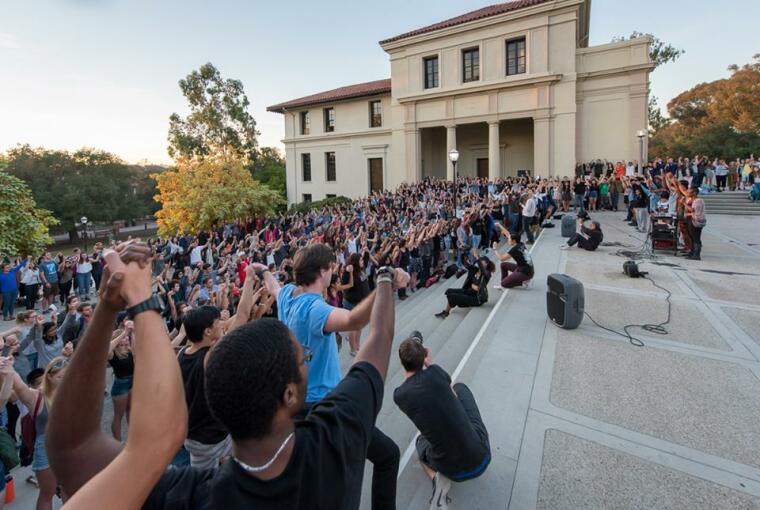Black student at Occidental charges conservatives not protesting are 'marginalized' and bullied

LOS ANGELES (Christian Examiner) – A black conservative collegian said he has been ostracised by former friends and marginalized for not supporting activist groups on campus who have said racial bias exists at Occidential College and have demanded the resignation of the school's president.
"They're doing what they claim white people do to us, which is marginalize us and cast us as the bad guy," Alton Luke II told the Los Angeles Times Friday. "You can't have a different opinion here or you're persecuted. But I'm standing against their tyrannical and unjustified actions."
Students ending an occupation of Occidental College ("Oxy") buildings on Friday have leveled 14 demands including mandatory diversity training and the resignation of President Jonathan Veitch.
Luke, a sophomore kinesiology major, says he has been treated with hostility or ignored by former friends because he will not support the activist group, Oxy United for Black Liberation, a coalition of members from Oxy's Black Student Alliance and fro, Coalition at Oxy for Diversity and Equity.
In some cases, the backlash from student activists involved in the protest might be considered cyberbullying, as it has at other centers of higher education like the Claremont McKenna College.
When Luke announced on Facebook that he declined to join the protests, which saw 300 to 400 of the college's 2,000 students attend, some supporters of the movement invited him to join them in a dialogue about their motivations, while others shunned Luke in person or called him ignorant, he said.
MORE PROTESTS
Oxy United for Black Liberation occupied the administration building and moved to the alumni building, where Veitch was escorted away by police for his protection. Some student protestors said they were not receiving the education promised when they enrolled.
Danielle Raskin, a student movement leader, told the Los Angeles Times, "As a community and movement, we've been welcoming and inclusive to those with different views.
But Luke calls the campus atmosphere stifling, saying he was insulted on social media. "Either you're liberal or you're wrong," he said. "It's not a healthy environment."
At Claremont, students used hunger strikes to effect the resignation of Dean of Students Mary Spellman, who was accused of racial bias and marginalizing minority students, yet others on campus who support diversity were made uncomfortable by the extreme tactics and broad claims of discrimination.
Many individual students spoke up in defense of Spellman.
Protests also arose when students allegedly bullied two other students over social media for posting a photo of themselves in sombreros and exaggerated mustaches.
A letter signed by over 300 students expresses their discomfort with the antagonistic atmosphere on campus: "Never have we been more divided as community," said the letter. "Never did we think the day would come where we were scared to speak our minds, where fear of our fellow students' rage silenced us. It is time for the demonstrations and the hostile rhetoric to stop."
FREEDOM OF SPEECH
In a campus email reposted to Facebook, Oxy President Veitch responded to the students' demands, addressing them one by one. "Actions speak louder than words," Veitch wrote, "and the ultimate measure of our success will be how we work to fulfill our promises. We know that these steps are not the end, but rather the beginning of our work on this issue."
In the letter, Veitch promised to address or seriously consider all of the demands except his resignation.
Students have declined to meet privately with Veitch to address their demands, Huffington Post reported. Cruz Riley, a student activist, said the reason for their refusal to negotiate was a lack of change. "There's been dialogue forever and no change, and that's the current reasoning for the unwillingness to negotiate, because we've been negotiating and there's no change," Riley said.
Faculty and staff on campuses with similar demonstrations have said, like Luke and other individuals, they do not support the protestors' attitudes and rhetoric.
"It's disheartening to see how they [students] are now using freedom of speech to demand there be less freedom of speech," said Greg Lukianoff, president of the Foundation for Individual Rights in Education in Philadelphia.